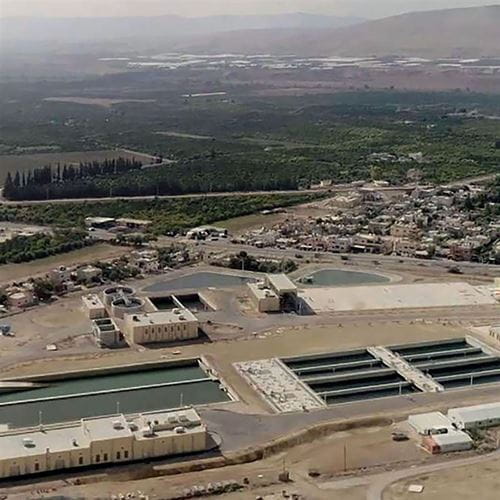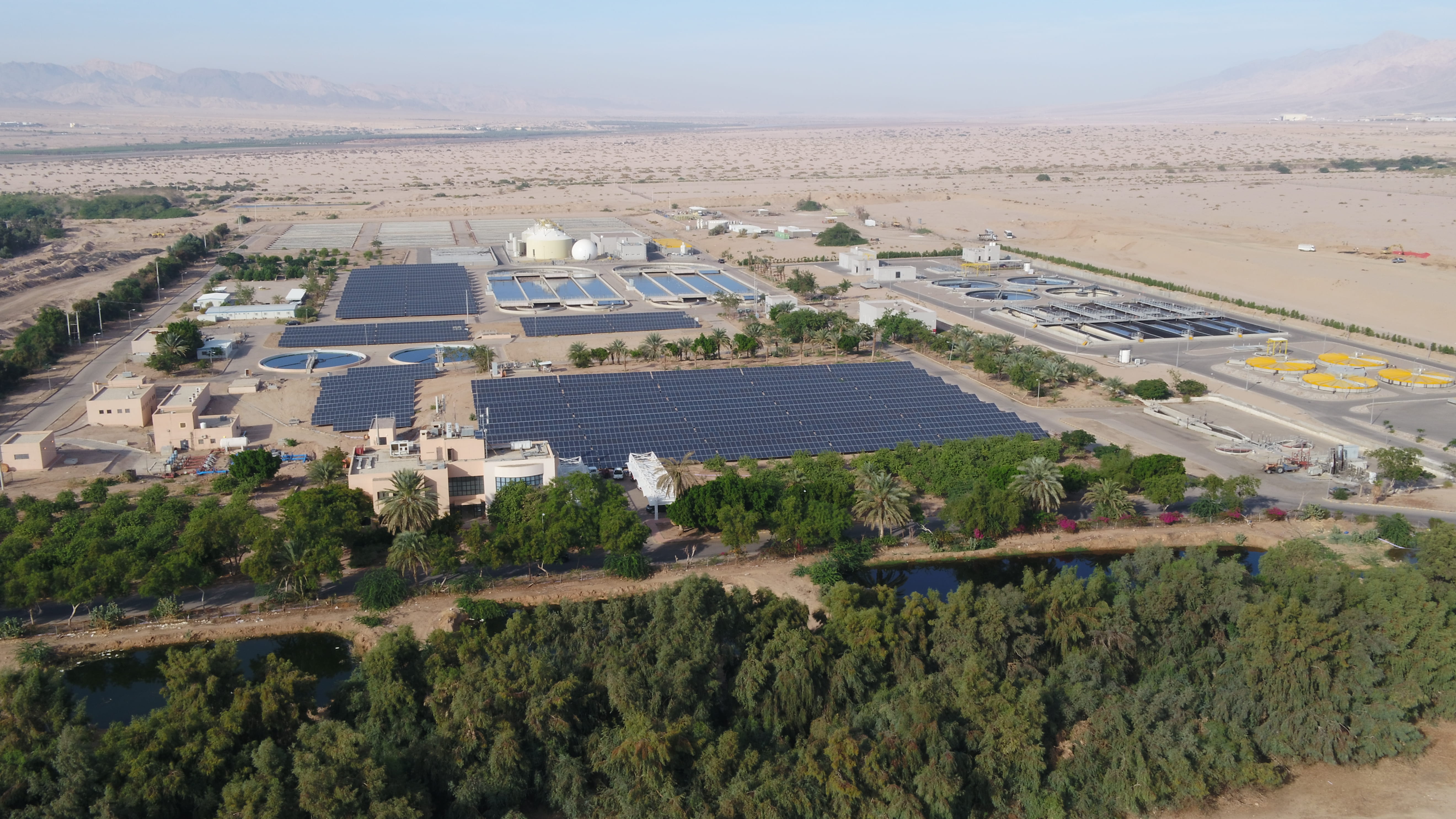Upgrading Jordan’s Water Infrastructure with USAID
Jordan is one of the most water-stressed countries in the world. Recent studies document the critical need for new and improved water facilities and infrastructure to avoid severe water insecurity by 2030. Dry weather and drought, exacerbated by climate change, are stark challenges. Intermittent water supply is common, with the majority of the population receiving water between 24 and 72 hours per week. In turn, this intermittent service creates extreme pressure on piping systems, leading to frequent leaks and water loss and, occasionally, water quality and public health risks. Focused investment and strengthened management of water resources are essential in this country of more than 10.6 million people. International collaboration and support are vitally important given population growth in Jordan, which hosts more than 4.5 million Palestinian, Iraqi, and Syrian refugees from conflicts in the Middle East.
USAID has a decades-long partnership with the Ministry of Water and Irrigation, Water Authority of Jordan and other stakeholders in the Hashemite Kingdom of Jordan, working comprehensively to protect water resources, increase water availability, improve drinking water quality, advance water conservation and efficiency, and promote water reuse for industry and agriculture. USAID has advanced progress in all these facets of water sector development, engaging CDM Smith as an implementing partner in Jordan on a nearly continuous basis since 1992.
CDM Smith provides sustainable development expertise for Jordan's water sector through a collaborative, multidisciplinary approach. We have served Jordan's infrastructure needs through task orders with USAID—the Water-Wastewater Infrastructure Project (2010-2017), Jordan Water Infrastructure Activity (2018-2023), and Building Water Infrastructure Activity (2023-2028)—and parallel contracts funded by USAID, AFD, KfW and EIB. Our work includes designing, building, and rehabilitating vital wastewater treatment plants and preparing a 30-year build-operate-transfer concession contract for the Aqaba-Amman Water Desalination and Conveyance Project. We continue to provide technical assistance, conduct assessments, and manage construction for water and wastewater systems in Jordan, providing life-saving water security to the nation.
Aqaba Amman Water Desalination and Conveyance Project
One of the most significant elements to Jordan’s water transformation is the Aqaba Amman Water Desalination and Conveyance Project. Desalinated sea water from the Gulf of Aqaba will be treated at a 300 MCM per year capacity plant featuring a 450 kilometer conveyance system. The project will supply Amman and governorates along the conveyance route with 250 million cubic meters (MCM) per year, with the remaining 50 MCM per year planned for Aqaba and the south Wadi Araba area.
To support the Ministry of Water and Irrigation with the planning and procurement of the project, CDM Smith provides technical, financial, and legal services as USAID’s implementing partner for this build-operate-transfer 30-year concession contract. In support of this effort, CDM Smith prepared a concept design and feasibility cost estimate to determine the viability and bankability of treating seawater and a conveyance system from Aqaba to Amman. The project has also taken on climate change priorities to limit greenhouse gas emissions from the power consumption by introducing a renewable energy generation facility as part of the scope.
North Aqaba Wastewater Treatment Plant
The North Aqaba Wastewater Treatment Plant (WWTP) is another upgrade completed under USAID. Originally constructed in 1986 with enough capacity to receive 9,000 cubic meters of wastewater per day, Aqaba Water Company expanded and rehabilitated the plant in 2021 to accommodate the sanitation needs of Aqaba’s growing population and to enhance sanitation services for residents of the Aqaba Governorate. CDM Smith supported the construction of the new facilities and the rehabilitation of the existing wastewater treatment plant. The new expansion can accommodate an extra 28,000 cubic meters of wastewater per day—40,000 cubic meters in total. The plant now has enough capacity to safely manage sanitation services for 150,000 people in the Aqaba Governorate.
The new facility includes a combination of solar power and biogas produced through the wastewater treatment process. These green alternatives are elevating the plant’s ability to meet energy demands of the new expansion, including the energy needed to pump treated water for reuse. By preventing the contamination of Jordan’s precious freshwater sources, this initiative is protecting public health and environmental standards while lowering operating costs.
Tafileh Wastewater Treatment Plant
USAID, the Government of Jordan, and CDM Smith also made strides to accommodate the sanitation needs of Tafileh’s growing population by replacing the existing Tafileh WWTP with a higher-capacity, more efficient plant for residents of the Tafileh Governorate. The original WWTP was constructed in 1989 with enough capacity to receive 1,600 cubic meters of wastewater per day, but the new plant has allowed for waste processing capacity of 5,000 cubic meters per day with the potential to expand to 7,500 cubic meters per day. The new plant’s capacity tripled from about 25,000 to over 78,000 people. This treated wastewater serves as an alternative water source for agricultural irrigation, allowing potable surface and groundwater sources to be used for drinking.
Since 1992, USAID and CDM Smith have collaborated with Jordan to plan, engineer and supervise implementation of water and wastewater projects that have protected public health and advanced the country’s water security.
Zara Ma'in Water System
The Zara Ma’in water supply system, originally constructed in 2007, is one of the three major providers of potable water to the city of Amman. It conveys 38 million cubic meters per year of treated water from 340 meters below sea level to elevations exceeding 900 meters above sea level, whilst maintaining a constant water supply to approximately 1.7 million people. The improvements to the Zara Ma’in water supply system are making the Jordan water supply more resilient to the effects of climate change as well as reducing energy costs and CO2 emissions. CDM Smith provided investigation, specifications/drawings and CMS for the 25 new stainless steel pumps and five motors. Through increased efficiency, these improvements have already saved more than $11 million in operating costs, 85 million kilowatt-hours of electricity, and 60 thousand metric tons of CO2 emissions during the startup phase alone.
Dair Alla Water and Wastewater Project
CDM Smith is also supporting USAID’s Water and Wastewater Improvement Efforts for Dair Alla, a district in Balqa Governorate in the Jordan Valley with no wastewater pipeline networks, by providing well drilling contract tender evaluation and pre-contract services. To increase the availability of much-needed fresh water, the team is rehabilitating groundwater wells, upgrading a desalination water treatment plant and building a water transmission system serving 17 localities. These additions to Dair Alla will allow for an influx of fresh water available, keeping pace with the growing demand driven by population increases.
Additional Work
CDM Smith is also completing an array of additional architecture and engineering services required in the water sector for USAID. The Amman Terminal Reservoirs Evaluation will identify the need for expansion or rehabilitation for four terminal reservoirs in Amman. The reservoirs include Dabouq, Muntazah, and two reservoirs located in Abu Alanda. The Environmental Impact Assessment for Eshidiya Industrial WWTP, includes the preparation of a report to plan recycling wastewater for washing at the Eshidiya phosphate mines facility. Other project efforts include feasibility studies, developing hydraulic models and construction management.
In the face of depleting ground water resources, climate change impacts and rapidly expanding population centers, the Government of Jordan, in partnership with USAID, has embarked on this multi-faceted program to refurbish, enlarge and privatize strategic components of its freshwater and wastewater infrastructure towards greater water security.
Supplying Jordan with consistent potable water is vastly improving quality of life for its residents. Both USAID and CDM Smith are dedicated to achieving better sanitation management, protecting water sources, increasing irrigation to improve agriculture and providing households with constant access to water. These efforts addressed public health, economic impacts and industrial impacts to promote a better quality of life for Jordanians.



















